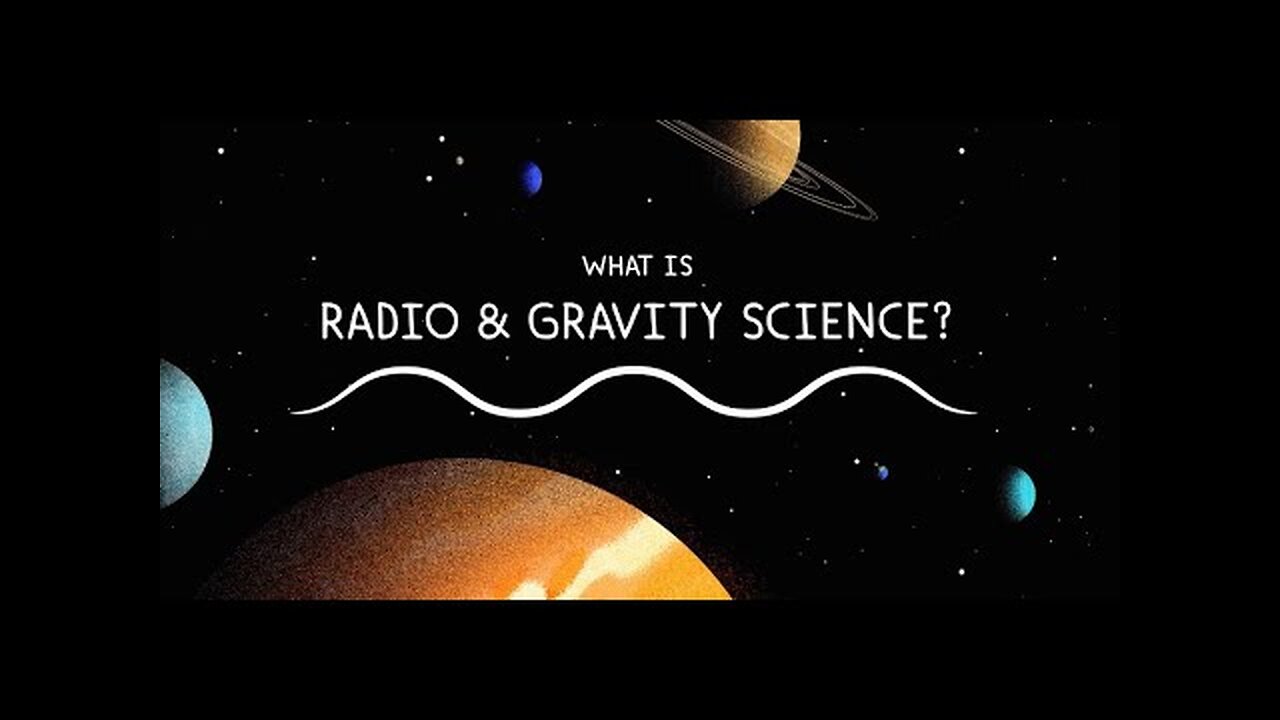Premium Only Content

How NASA Uses Gravity and Radio Waves to Study Planets and Moons
The Deep Space Network, NASA’s international collection of giant radio antennas used to communicate with spacecraft at the Moon and beyond, helps scientists and engineers use gravity and radio science experiments to learn more about our planetary neighborhood.
After reaching a spacecraft reaches its destination, it uses radio antennas to communicate with the Deep Space Network, which in turn transmits radio signals back to the spacecraft. Every spacecraft travels in a predetermined path emitting radio signals as it orbits around its target. Scientists and engineers can infer the spacecraft's location and how fast it's going by measuring changes in the spacecraft's radio signal frequency. This is made possible by the Doppler effect, the same phenomenon that causes a siren to sound different as it travels towards and away from you.
The Doppler phenomenon is observed here when the spacecraft and the Deep Space Network antenna move in relation to each other. Differences between the frequency of radio signals sent by the spacecraft as it orbits and signals received on Earth give us details about the gravitational field of a planetary body. For example, if the gravity is slightly stronger, the spacecraft will accelerate slightly more. If gravity is slightly weaker, the spacecraft will accelerate slightly less. By developing a model of the planetary body's gravitational field, which can be mapped as a gravitational shape, scientists and researchers can deduce information about its internal structure.
The Deep Space Network was developed by and is managed by NASA’s Jet Propulsion Laboratory (JPL) in Southern California. The antennas of the Deep Space Network are the indispensable link to robotic explorers venturing beyond Earth. They provide the crucial connection for commanding our spacecraft and receiving never-before-seen images and scientific information on Earth, propelling our understanding of the universe, our solar system and ultimately, our place within it.
JPL manages the Deep Space Network for the Space Communications and Navigation (SCaN) Program, based at NASA Headquarters within the Space Operations Mission Directorate.
Learn more about the DSN at go.nasa.gov/about-dsn
Credit: NASA/JPL-Caltech
-
 30:41
30:41
Crowder Bits
1 day agoEXCLUSIVE: Charlie Kirk Eyewitness Details Shooting "Sacrifice Your Life For What You Believe In."
13.1K13 -
 4:14
4:14
The Rubin Report
1 day agoDave Rubin Shares Behind-the-Scenes Story of What Charlie Kirk Did for Him
28.4K14 -
 1:58:58
1:58:58
Badlands Media
23 hours agoDevolution Power Hour Ep. 389: Psyops, Patsies, and the Information War
79.5K63 -
 2:13:55
2:13:55
Tundra Tactical
5 hours ago $5.84 earnedTundra Talks New Guns and Remembers Charlie Kirk On The Worlds Okayest Gun Show Tundra Nation Live
23.9K2 -
 1:45:08
1:45:08
DDayCobra
7 hours ago $32.25 earnedDemocrats Caught LYING Again About Charlie Kirk's KILLER
58K73 -
 19:23
19:23
DeVory Darkins
8 hours ago $11.33 earnedShocking Update Released Regarding Shooter's Roommate as Democrats Issue Insane Response
33.1K131 -
 19:53
19:53
Stephen Gardner
10 hours ago🔥EXPOSED: Charlie Kirk Shooter's Trans Partner Tells FBI EVERYTHING!
52.6K305 -
 2:47:25
2:47:25
BlackDiamondGunsandGear
6 hours agoAfter Hours Armory / RIP Charlie Kirk / What we know
26.4K4 -
 29:09
29:09
Afshin Rattansi's Going Underground
1 day agoThe Political Life of Malcolm X: Busting the Myths (Prof. Kehinde Andrews)
41.6K13 -
 2:47:25
2:47:25
DLDAfterDark
6 hours ago $3.59 earnedThe Assassination of Charlie Kirk - Just What We KNOW
24.3K6